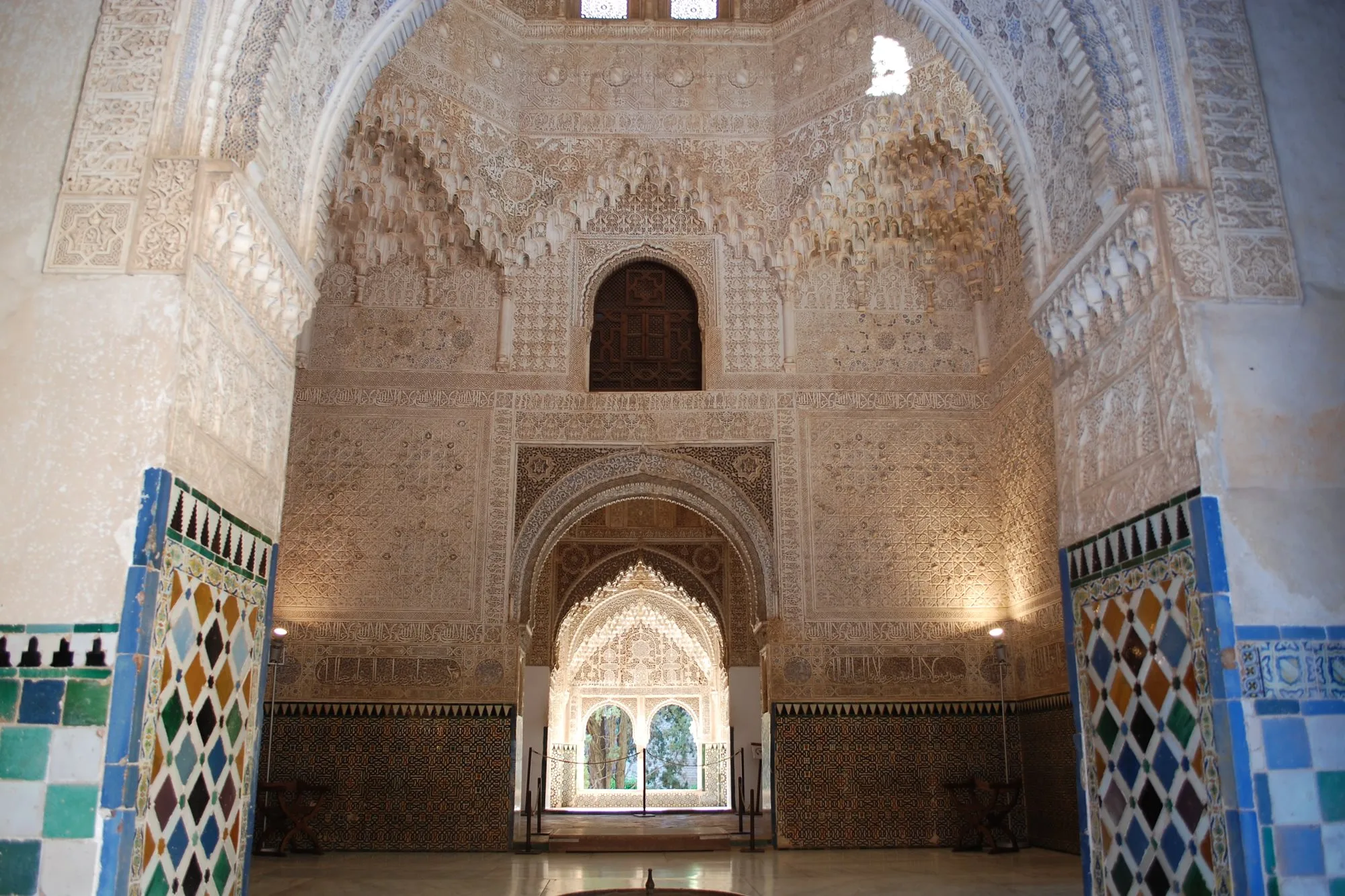
Cookie settings
We use our own and third-party cookies in order to offer our services, display videos, obtain statistics and offer personalized advertising.
For more information, please read our cookies policy.

The Alhambra is located on the top of the hill that the Arabs called al-Sabika (which means Red Castle), on the left bank of the River Darro, in front of the popular neighbourhoods of the Albaicín and the Sacromonte in the city. This monument is clearly divided into four areas: the Palaces, the military area or Alcazaba, the city or Medina, and the Gardens of the Generalife, created by Aben Salid Ismail in 1319. It joint military functions with architectural elements such as walls and towers and with residential elements such as courtyards, halls, rooms for the harem, baths, etc. Its gardens, fountains, ponds, etc. are also relevant.
The Alcazaba, the oldest area of the Alhambra, is surrounded by huge towers and gates. Visitors can only access there through rectangular passages built as a defensive measure. It was built by Mohammed I. The Wine Gate (Puerta del Vino) from the XV Century, drives to the Square of the Cisterns (Plaza de los Aljibes). To the West of this square you can find the oldest constructions of the Alcazaba; to the East, the Palace of Carlos V is located, and to the North of said Palace the Nasrid Palaces (Palacio Árabe o Palacios Nazaríes) are located. The Alcazaba, whose entry is located on the left side of the Square of the Cistern, and the Vermilion Tower (Torre Vermeja) are the oldest parts of the hill. The current buildings come from the reform made by Alhamar in the middle of the XIII Century. Later, Mohammed I built the walls and the Broken Tower (Torre Quebrada), the Keep (Torre del Homenaje) and Watch Tower (Torre de la Vela).The complex shows the strict and close aspect of its fortifications. To the East, we can find the Gardens of the Partal (Jardines del Partal) and the Ladies Tower (Torre de las Damas). Other important towers are: the Tower of Mihrab (Torre del Mihrab), Tower of the Points (Torre de los Picos), Tower of the Judge (Torre del Candil), Tower of the Captive (Torre de la Cautiva), famous by its rich decoration, and the Tower of the Princesses (Torre de las Infantas). Finally, the Water Tower (Torre del Agua) that finishes off the East side with its aqueduct.
The nucleus of the Alhambra is the Comares Palace (Palacio de Comares) that was the official residence of the King. It comprises several rooms that surround the Courtyard of the Myrtles (Patio de los Arrayanes), and has galleries with porticoes at the end. It was built by Yusuf I. It is divided into four different areas. To the West, on the left side, we find the Courtyard of the Madraza of Princes (La Madraza de los Príncipes), on the right we find the Courtyard of the Machuca (Patio de Machuca), the Mexuar with the Courtyard of the Gilded Room (Patio Dorado) and the Courtyard of the Reservoir (Patio de la Alberca) with the baths and finally the Courtyard of the Wrought Iron Grille (Patio de la Reja). In the Courtyard of the Gilded Room we can see the beautiful façade of the gate to this palace that was built by Mohammad V, Yusuf I´ s son. The decoration of the whole façade is very rich, with a baseboard of ceramics and plasterwork, showing its beautiful wooden tiled roof with eaves.
The Mexuar is a room where justice was administrated. It was built by Ismail (1314-1325). The four columns that stand in the middle of the hall have the Nasrid style repeated in the rest of the Palaces: a marble shaft finished off with rings, and a capital derived from the Almohad art, with a cylindrical base followed by another square section decorated with different forms and that in this case conserves part of its colours. On the entablature above there was another section with windows, that was replaced by a Moorish coffered ceiling from the XVI Century, when the upper floor was added and the hall became a chapel. The Courtyard of the Guilded Room (Patio del Cuarto Dorado), a link between the Mexuar and the Comares Palace, was changed in order to adapt the contiguous rooms for the residence of Carlos V.
The Courtyard of the Myrtles becomes a type of Spanish- Arabic courtyard, due to its harmony and sober combination of water with architecture. It has a vast rectangular floor, and its name comes from the myrtle bushes that surround the central pond. The water that softly emanates from its sides, creates a mirror in which the sky and the huge dimensions of the Palace are reflected.
The Courtyard of the Lions, built in 1378 by Mohammed V, is the most valuable jewel of the Alhambra. Its pavilions, decorates with mocarabes and abundant columns, and the famous fountain of the lions in the middle of the courtyard are very famous. It has a rectangular floor and is oriented in a perpendicular way to the Courtyard of the Myrtles. It appears surrounded by a gallery supported by 124 thin Máchale marble columns that are distributed independently creating groups of two, three or four columns. Its shafts are decorated with rings in the upper section, and on its square capitals there are written inscriptions.
As well as the aforementioned halls, the Hall of the Abencerrajes (Sala de Abencerrajes) is also important, due to the double arch of entry, and the twin arches that link the hall with two lateral rooms. But the most relevant element of this hall is the marvellous dome of mocarabes, whose structure draws an eight peak star illuminated by sixteen windows. In front of it, with a dome of mocarabes of great beauty, the Hall of the Two Sisters (Sala del las Dos Hermanas) is specially beautiful. The origin of its name comes from the twin marble flagstones that flank the small fountain in the middle. The dome is a huge dome with stalactites, decorated with celestial symbols. It is leaned on an octagonal base where sixteen windows have been opened. Other rooms that surround the Courtyard of the Lions are the Hall of the Kings (Sala de los Reyes) or the Hall of the Ajimeces (Sala de los Ajimeces) that drives to the charming Daraxa´ s Mirador (Mirador de Daxara), where you can see the garden with the same name. This hall should be useful for resting as well as for parties. All the ceilings are decorated with mocarabes, and conserve rests of colours. The domes of the four rooms are illuminated by lattices.
The origin of the name of the Hall of the Boat (Sala de la Barca) comes from the semicylindrical vault that covers the hall. The Hall of the Ambassadors (Salón de embajadores) was the symbolical focus of the Nasrid power. It is a square hall. Over the original tiled baseboard, a rich decoration based on stuccos, before painted, covers the whole wall. This decoration is composed by poems and religious inscriptions, but the most important element of the hall is the wooden dome of craftsmanship.
The Palace of the Partal (Palacio del Partal) was built at the beginning of the XIV Century, so it is the oldest Nasrid palace. Its orientation is similar to the Comares Palace´ s, but only the building known as Ladies Tower, whose silhouette is reflected on the water of the huge rectangular pond, has arrived to our days. In front the pond, five arches are opened. The Palace of Yusuf III (Palacio de Yusuf III) was located in the area of the Higher Partal. It was built there to take advantage of the drop of the floor, and only part of the pond and part of the walls of some of the rooms have arrived to our days. It seems that the original construction comes from the reign of Mohammed II (1273- 1302), but Yusuf III was who carried out its redesigning and who made this palace one of the most spectacular.
The Palace of Carlos V was designed by the architect Pedro Machuca, and its construction finished in 1635. The building is made of worked stone and its main façade is 63 meters wide by 17.4 meters high. Its design is irregular, due to the circular courtyard inside. The sobriety of the first section brings out the sculptural magnificence of the second section. The two big gates, which are made of grey marble, are one of the jewels of the Spanish Renaissance as well as the circular courtyard, built by Machuca in 1557- 1568. Its wide circle is 31 meters of diameter and is surrounded by a wide portico of 32 Doric columns. The columns of the second gallery are Ionic. From the terraces of this building we can see the great forest of the Alhambra. In this palace is located the Museum of the Alhambra, with remains and pieces from the continuous excavations, and the Museum of fine arts.
The Gardens of the Generalife became the leisure place for the Moorish kings. The palace should be built in the middle of the XIII Century. The ideal Courtyard of the Irrigation Ditch (Patio de la Acequia) is its most important area, in whose centre there is a channel with a wide range of fountains. By a modern staircase of stone you access to the higher gardens, a beautiful group that creates real suspension gardens in the way to the River Darro. This place offers the best sights, such as the sight from the famous Silla del Moro. In the slope of these magical gardens of fruits and flowers are located the rest of palaces and residences of unsurpassable richness, such as the Palace of Delharosa (Palacio de Delharosa) and the Palace of Alixares (Palacio de los Alixares).
4 reviews
Are you in Malaga and desire to visit the Alhambra? Do it comfortably by booking this excursion.
You will visit all corners of the Nasrid Monument accompanied by an official guide, including the Nasrid Palaces.
Do not worry about the tickets or the transport, since all is included in the price of this service.
Why miss this opportunity?
Address and telephone
Opening times
Tickets and prices
* Prices for adults. Different fares apply for minors, European Youth Card holders, EU citizens over 65, large families members and people with a disability of 33% or more.
If you see any mistakes or want to add anything to this information, please contact us.
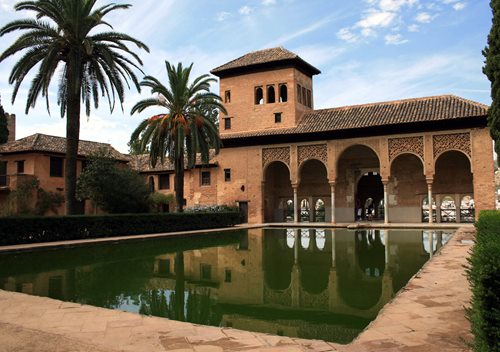
4 reviews
Are you in Malaga and desire to visit the Alhambra? Do it comfortably by booking this excursion.
You will visit all corners of the Nasrid Monument accompanied by an official guide, including the Nasrid Palaces.
Do not worry about the tickets or the transport, since all is included in the price of this service.
Why miss this opportunity?
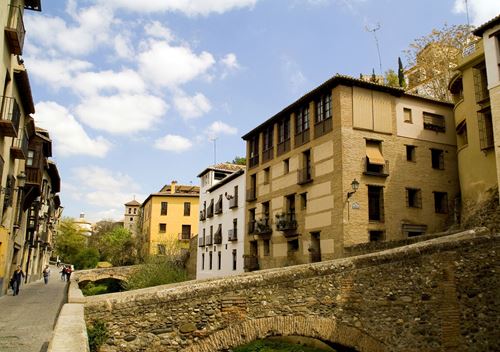
4 reviews
Would you like to know truly Granada?
In this walking tour: Albayzin and Sacromonte we will take a walk through the Granada's Historical districts. We will discover the Granada's history and the artistic details of its buildings.
Don't join us?
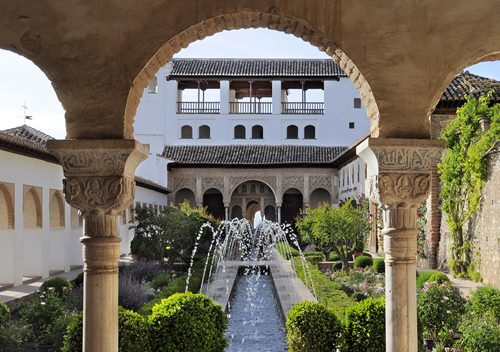

7 reviews
Tired of traveling with your luggage? Don't worry, here you can book your storage service in the heart of Granada. You'll leave your backpack or suitcase in a safe place, with expert staff who will help you make the most of the city.
All you have to do is leave your luggage and continue your route through Granada freely.

8 reviews
A perfect free tour to understand how changed Granada at the end of 15th Century after Catholic Kings conquest is walking through the historical neighbourhoods. A tour guide will carry to you to stroll the labyrinth and stoned streets of the Albaicin and the picturesque gypsy Sacromonte. Both neighbourhoods are declared World Heritage by UNESCO.
You'll fall in love of Granada and its leyends from the best Alhambra viewpoints.
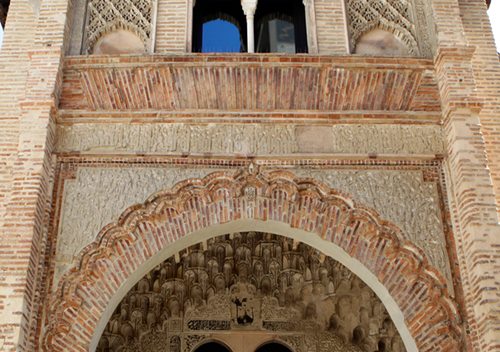
27 reviews
This Free Tour is ideal to discover the most emblematic places of the Granada city centre.
You will visit places as outstanding as Plaza Nueva, the Royal Chapel, the Cathedral, Alcaicería, or the Albaicín Bajo.
Do not pay anything now and put the price at the end of the route.

137 reviews
Strolling through the Alhambra, considered a World Heritage Site by UNESCO, is a must for anyone visiting the city of Granada.
It is the most emblematic monumental ensemble created over more than six hundred years by cultures as diverse as the Muslim, the Renaissance or the romantic.
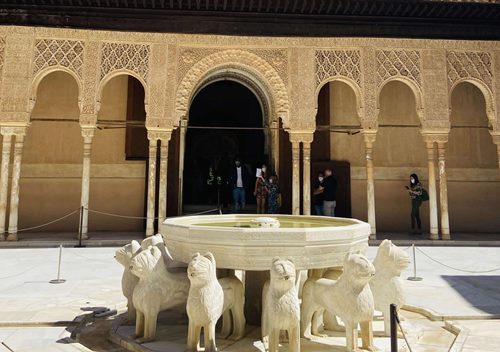
9 reviews
Enjoy of the Alhambra and Generalife in an exclusive way with this semi-private guided tour.
You will visit the Nasrid Monument in a reduced group along with an official guide who will explain all the History and Art of the eighth wonder of the world.
Tickets and guided tour to the Nasrid Palaces are included!

4 reviews
Would you like to know truly Granada?
In this walking tour: Albayzin and Sacromonte we will take a walk through the Granada's Historical districts. We will discover the Granada's history and the artistic details of its buildings.
Don't join us?


7 reviews
Tired of traveling with your luggage? Don't worry, here you can book your storage service in the heart of Granada. You'll leave your backpack or suitcase in a safe place, with expert staff who will help you make the most of the city.
All you have to do is leave your luggage and continue your route through Granada freely.

8 reviews
A perfect free tour to understand how changed Granada at the end of 15th Century after Catholic Kings conquest is walking through the historical neighbourhoods. A tour guide will carry to you to stroll the labyrinth and stoned streets of the Albaicin and the picturesque gypsy Sacromonte. Both neighbourhoods are declared World Heritage by UNESCO.
You'll fall in love of Granada and its leyends from the best Alhambra viewpoints.

27 reviews
This Free Tour is ideal to discover the most emblematic places of the Granada city centre.
You will visit places as outstanding as Plaza Nueva, the Royal Chapel, the Cathedral, Alcaicería, or the Albaicín Bajo.
Do not pay anything now and put the price at the end of the route.

137 reviews
Strolling through the Alhambra, considered a World Heritage Site by UNESCO, is a must for anyone visiting the city of Granada.
It is the most emblematic monumental ensemble created over more than six hundred years by cultures as diverse as the Muslim, the Renaissance or the romantic.

9 reviews
Enjoy of the Alhambra and Generalife in an exclusive way with this semi-private guided tour.
You will visit the Nasrid Monument in a reduced group along with an official guide who will explain all the History and Art of the eighth wonder of the world.
Tickets and guided tour to the Nasrid Palaces are included!
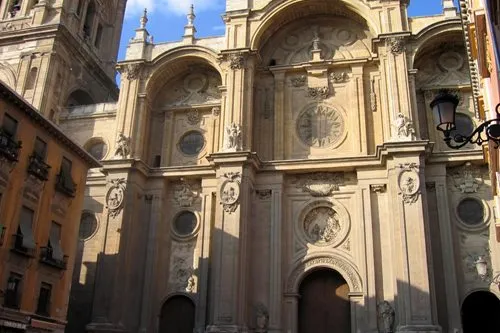
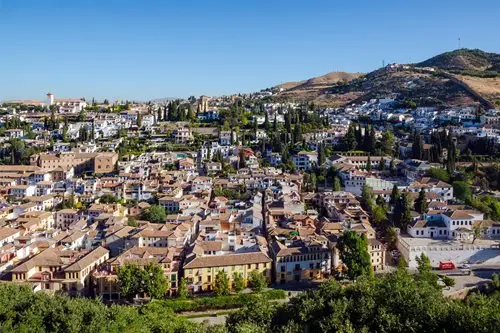

Book your hotel